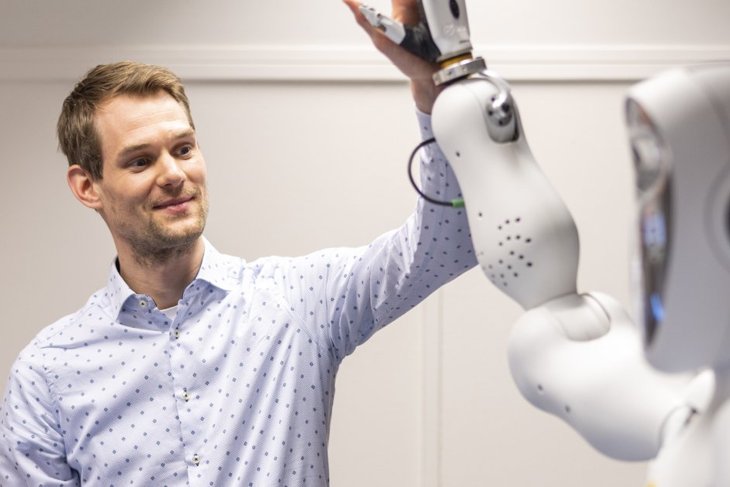It feels like an impossible puzzle - for every 133 job vacancies, there are only 100 jobseekers available, says CBS. In Twente, it's no different: the number of jobs has doubled in two years to as much as 11,300, according to the Twente labour market monitor.
Vacancies are skyrocketing and everyone is feeling the pressure. All are struggling with the same question: where do we find the much-needed staff? What if robots become our future colleagues and thus solve the staff shortage? Experts at the University of Twente (UT) think so, though they also warn of pitfalls.
What do our UT experts think?
Linda van Asselt, programme manager at the Twente Board, emphasises that the staff shortage is not a new problem but is becoming very visible today. Population ageing is already occurring and will continue for decades to come. Technology, including robotics, plays a key role in reducing the staff shortage. The University of Twente focuses on integrating IT and technology into education in a better way and reskilling people already working in the labour market.
Suzanne Janssen, assistant professor of Organisational Communication, studies the role of robots as colleagues. She highlights that a future in which robots take over all human tasks is a far-off scenario. Social robots currently mainly serve as support tools or gadgets. Most people keep relying on human workers for the time being.
Collaborate, not replace
Sarthak Misra, professor of Surgical Robotics, is an expert on robots in healthcare. He believes robots can improve patient care and reduce pressure on the healthcare system. During surgeries, a clinician remains 'in control', but the robot takes over simple tasks. This could lead to a reduced need for support staff in the future.
Ian Gibson, professor of Industrial Design Engineering, sees a growing interest in robotics as a solution to staff shortages, especially in sectors with highly skilled personnel. It is expected that robots in the workplace will become booming, but full robotisation is still some way off.
According to Suzanne Janssen, the development of intelligence will cause robots to work together with people rather than apart from them in the future. In turn, this will change the overall culture within organisations. For most companies and institutions, this is not yet relevant. Each profession consists of many small tasks and activities, of which many are difficult to automate.
Realistic expectations in a world of technology
Perhaps expectations are too high. For now, robots will not solve staff shortages. New technology offers relief and support, but a variety of complex tasks will remain human work.



